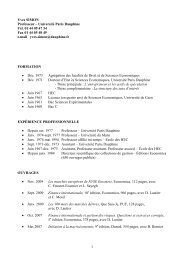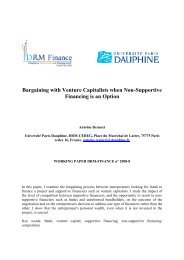Corporate governance and earnings management ... - CEREG
Corporate governance and earnings management ... - CEREG
Corporate governance and earnings management ... - CEREG
Create successful ePaper yourself
Turn your PDF publications into a flip-book with our unique Google optimized e-Paper software.
Verley (1906, p. 39) considers French law is “inspired” by <strong>and</strong> sometimes even “obsessed”<br />
with German law, stressing that while goodwill “can” be entered as an asset, it will be a<br />
“highly uncertain value” <strong>and</strong> a “fictitious” asset that should be eliminated without delay. Like<br />
Didier (1885), he believes that “the lower the figure for fixed assets, the greater our<br />
confidence in the company” (p. 133), <strong>and</strong> that the value of intangibles should not be “pumped<br />
up” (p. 141). Amiaud, a leading lawyer of the time, <strong>and</strong> (already) defending a “continental”<br />
view of the balance sheet against the “Anglo-Saxon” view (1920, p. 6), recommended that<br />
start-up costs (<strong>and</strong> in the minds of the period this generally included goodwill) should be<br />
written off “immediately” (1920, p. 104).<br />
On the whole then, the doctrine of the time was clearly in favor of the purely static<br />
approach. The dynamic approach of long-term amortization was only supported by Magnin<br />
(1912), whose writings, inspired by the German dynamic school, were fiercely criticized by<br />
most other authors.<br />
The only real resistance to the static view came from French followers of the famous<br />
German lawyer H.V. Simon, principally Duplessis (1903) <strong>and</strong> above all Charpentier (1906),<br />
who were in favor of goodwill remaining in the balance sheet at its acquisition value, unless a<br />
fall in its “useful” value could be proved. This is in effect a conservative version of the<br />
actuarial approach.<br />
b) Case law<br />
The few relevant court rulings issued were in favor of the purely static approach, i.e. rapid<br />
amortization regardless of its value in use 1 . Briefly, from this st<strong>and</strong>point goodwill becomes an<br />
immediate expense, although as a “favor” for companies, it could in exceptional<br />
circumstances be amortized over a brief period.<br />
1 Besançon, Feb. 1, 1895, Journal des Sociétés, 1895, p. 356; Revue des Sociétés, 1895, p. 429; Lyon, Feb. 20,<br />
1903.<br />
25



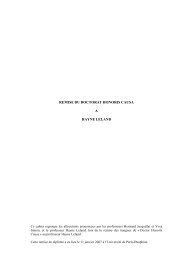
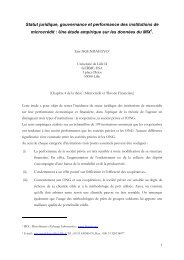
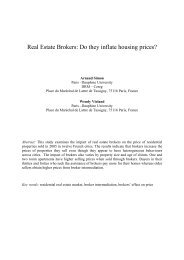
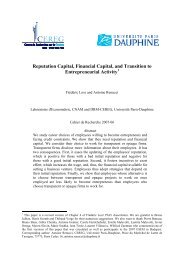
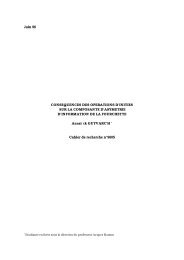
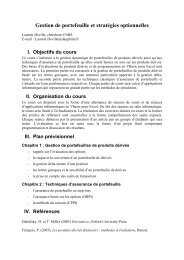
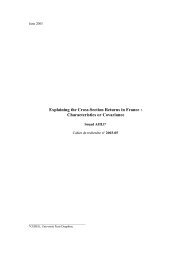
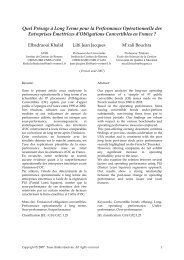

![& 6 ] ^ F ]^ - CEREG - Université Paris-Dauphine](https://img.yumpu.com/33326502/1/184x260/-6-f-cereg-universitac-paris-dauphine.jpg?quality=85)

